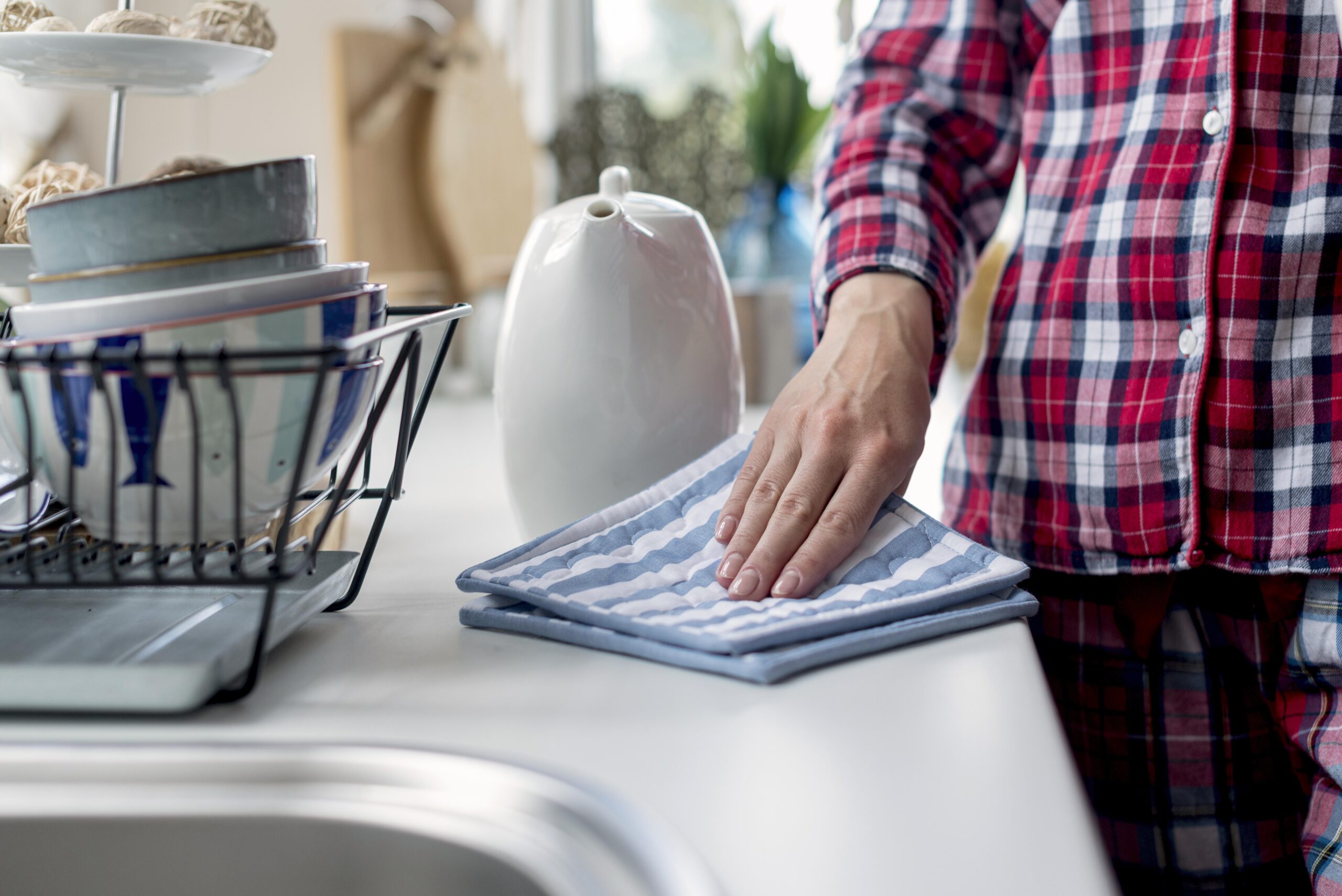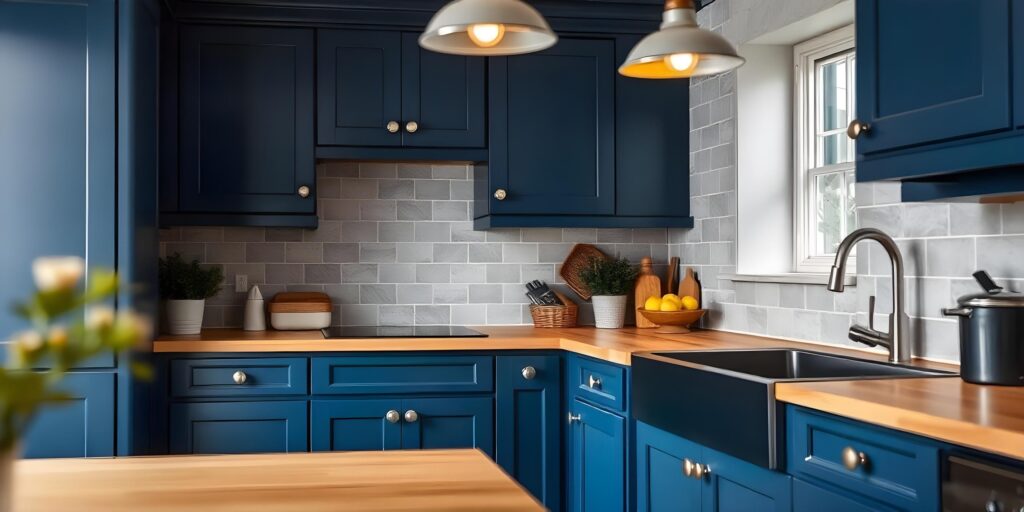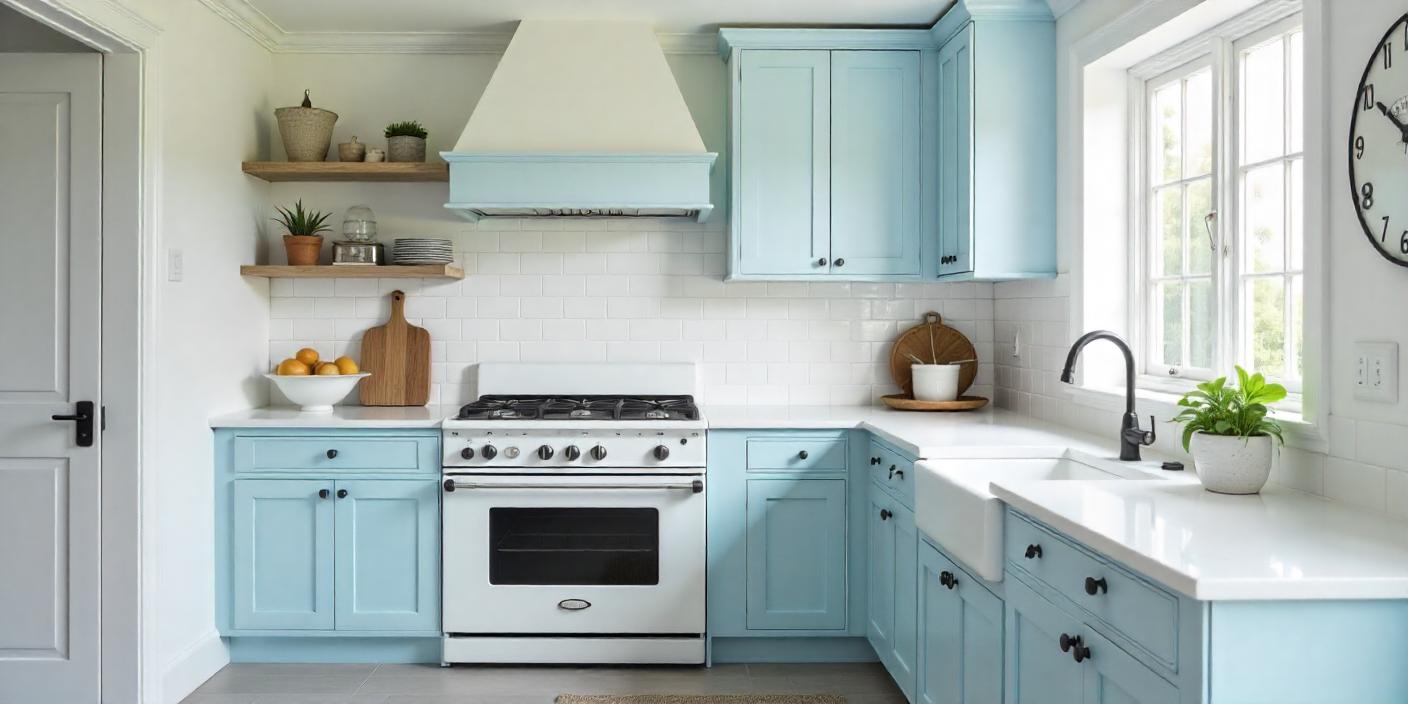Kitchen care secrets are some of the ways to take care and maintain your home kitchen space. Here are some basic and helpful examples to follow.
Kitchen Care Secrets: A Clean And Organised Pantry
A clean and organised pantry is a precept to the smooth running of the kitchen. Regular cleaning and de-junking of your pantry facilitates accessibility of ingredients, reduction of food waste and keeps pests away. First, take everything out and then examine expiration dates for all items — get rid of anything beyond its expiration date. This will create room for new stocks and avoid the accumulation of expired ones or those not needed, which take up space.
After clearing the shelves, wipe them properly with a damp cloth to remove dust, crumbs and sticky remains. Now it’s time for organisation after cleaning. Group similar items into categories such as grains, canned goods, snacks and baking ingredients, so you can find what you need quickly and easily. Store smaller items in clear, labeled containers and consider installing adjustable shelves to hold products of different shapes and sizes.
Storing regularly used items at eye level will make them easier to see and facilitate simple re-stocking. For a better system, store foods by date, placing newer items in the back and older items in the front for good rotation. Finally, make it a habit to check once a week that everything in the pantry is in its place, fresh and well-organised. Regular maintenance of the pantry reduces the chances of allowing some food to expire and builds clutter.
This will keep your meal preparation and cooking very smooth. With a focus on cleanliness and organisation, you will have a more functional and enjoyable kitchen that will save you lots of time and allow for healthier meal planning.
Kitchen Care Secrets: Conducting Regular Inspections

The regular inspection for repairs is a good habit to be maintained for your kitchen. The kitchen is one of the high-traffic areas in the home where daily usage can lead to wear and tear with minor issues quickly blowing out of proportion if left unattended.
Begin with faucet leaks, sink leaks and under-counter pipe leaks — water damage can create very costly problems, including mould or rot. Watch for the integrity of the seals around the sink and countertops for any gaps that could permit water infiltration into the cabinets. Secondly, one needs to scrutinise your kitchen appliances for specific malfunctioning or wear: the refrigerator, oven, and dishwasher. For instance, an ill-fitting door seal will result in an underperforming refrigerator and wastes energy — a faulty thermostat affects oven performance.
@ampquartzcabinets Dapur bukan kena nampak luas dan cantik je tau. Kena pastikan setiap sudut dapur korang FUNCTIONAL juga! Ada 5 je benda yang simple untuk jadikan dapur functional, cuba tengok sampai habis 👀 #KitchenTips #KitchenHacks #AMPQUARTZ
♬ MILLION DOLLAR BABY (VHS) – Tommy Richman
Another good practice involves the inspection of the flooring for any cracks or loose tiles. Over time, some tiles may become loose or cracked and laminate may buckle, leading to tripping hazards. This reduces the overall aesthetic appeal of your kitchen. One may also inspect the loose cabinet hinges and handles — such are easily tightened or repaired to keep them functional and prevent further damage.
Regularly inspecting your kitchen for repairs ensures that minor issues are addressed before they become more expensive or time-consuming problems, contributing to a cleaner, safer and more efficient kitchen environment. By staying proactive, you’ll not only prolong the lifespan of your kitchen but also save yourself from the frustration of unexpected repairs.
Kitchen Care Secrets: Cleaning Your Trash Can
One of the key habits of keeping a clean and healthy kitchen is deep cleaning the garbage can. It’s so easily forgotten but the trash can collects bacteria, odours and grime that have the tendency to bring down your entire kitchen’s cleanliness. The most a deep clean would need to be done is at least once a month or anytime the trash was messier than usual.
Take out the liner and start by getting rid of any remaining garbage. Next, wash the inside of the garbage can with soap and warm water, scrubbing away stains or remaining substance residue. If the area particularly has stubborn spots, use the baking soda and water mixture or disinfectant cleaner for a deep clean. One should not forget to also wash the lids and handles since they are often quickly and easily contaminated.
After washing, let the trash can be completely dry before you place a new liner inside it. You can also lightly spray the interior with deodorising spray as this will help neutralise any lingering odours within. Another good practice is to lay a trash bag liner at the bottom of the can to catch any leaks and spills that could happen over time.
Performing this simple cleaning trick as part of your regular routine not only keeps your kitchen smelling fresh and clean but will also prolong the life of your trash can, odour-free and germ-free. A clean trash can means a clean kitchen.
Kitchen Care Secrets: Wiping All Surfaces

Probably the simplest yet most effective habits to maintain as far as taking care of your kitchen goes is wiping down regularly. Cleaning countertops, stovetops and tables daily prevents dirt, grease, and food from building up and causing stains, bad odours and even growing bacteria.
With time, spills that are not cleaned off harden and may give rise to a tougher job of cleaning, probably ruining your surfaces in the process. You will be preventing such buildups by wiping them down after every use to keep your kitchen hygienic and pleasant to work in. A clean kitchen also helps keep your place looking good and fresh. An example of that would be how countertops gather crumbs, oil spills and even food particles; if not wiped right away, they diminish the look of your kitchen.
@ampquartzcabinets Siapa peminat dapur aluminium? Cuba comment sikit 🙆♂️🙆♀️ Kabinet Aluminium ni paling sesuai untuk wet kitchen! Beli 1, Percuma 11 spesial kita bagi untuk package bulan November ni. Berminat? Boleh PM kita terus ⬇ +6017 732 0149 (Jasmine) +6010 707 7815 (Lekha) +6010 719 7191 (Hema) https://go.wa.link/ampquartz #ampquartz #johor #customcabinetjohor #kitchencabinet #malaysiamadani
♬ เสียงต้นฉบับ – นาย วินลี่ ลี่ – ชาลี รีวิว
Keep the surfaces clean often with a mild cleanser or natural mixture like vinegar and water solution to keep the beauty of your surfaces — whether made from granite to wood to laminate. Besides, daily cleaning of the surfaces eradicates different germs and bacteria linked with food particles deposited in your place. This could be very important, especially if one is working in areas where raw foods have been prepared.
Keeping the surfaces clean minimises the possibility of cross-contamination, creating a safer environment to cook in. Overall, making it a habit to wipe surfaces often is part of broader kitchen maintenance that also aids in cleanliness and longevity.
Kitchen Care Secrets: Remembering To Clean The Sink
Cleaning the sink is one of those fundamental aspects you want to get into in maintaining your kitchen. As an important part of every kitchen, this is highly subject to receiving a number of bacteria and leftovers that can be building up within a short period and eventually become really stubborn to clean out over time.
After washing dishes, one should rinse out the sink and wipe off with a wet cloth food particles and leftovers. Use a non-abrasive cleaner for serious cleaning to scrub stains or anything that may have built up and this helps to keep sink drains clear, avoiding ugly odours building up inside. Cleaning your sink from time to time will help extend its life span especially if it’s made of stainless steel or porcelain. Indeed, grime tends to wear down this kind of surface.
Keeping a clean sink also somehow keeps your kitchen neater and cosier. Standing water in the sink, stubborn stains such cases should urge you to take a gentle abrasive like baking soda or even vinegar solution to refresh the surface. Not to forget, faucet handles are also good to clean for they do accumulate dirt and germs.
Make it a habit to help your kitchen be at its best regarding sanitation and eye appeal — surely this will make food preparation easier and cleaning too. This is just a simple thing but keeping your sink area clean does a lot for a maintained and serviceable kitchen.
Sign Up For Kitchen Design Ideas
Join over 5,000 homeowners subscribed to our newsletter!













